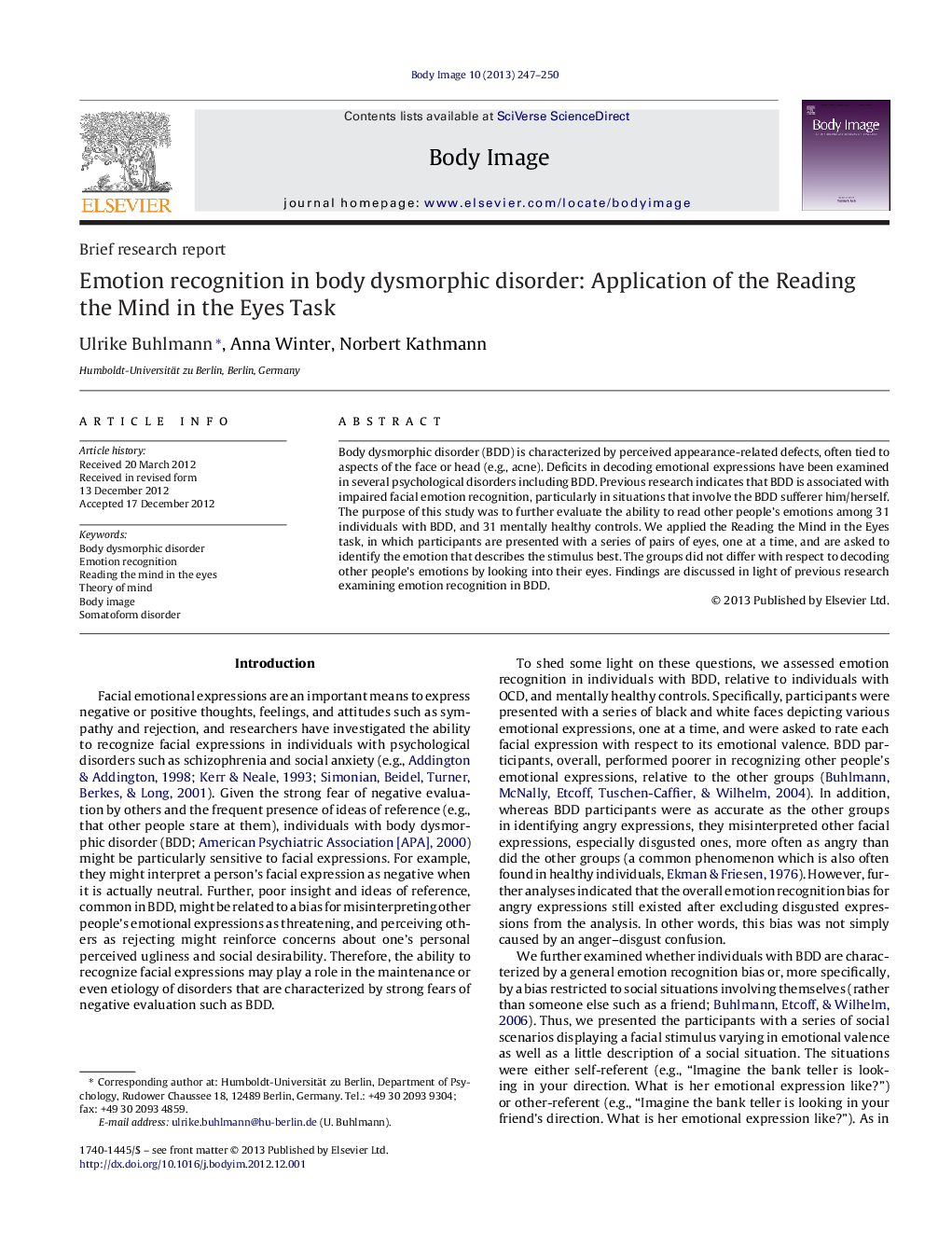| Article ID | Journal | Published Year | Pages | File Type |
|---|---|---|---|---|
| 903000 | Body Image | 2013 | 4 Pages |
Body dysmorphic disorder (BDD) is characterized by perceived appearance-related defects, often tied to aspects of the face or head (e.g., acne). Deficits in decoding emotional expressions have been examined in several psychological disorders including BDD. Previous research indicates that BDD is associated with impaired facial emotion recognition, particularly in situations that involve the BDD sufferer him/herself. The purpose of this study was to further evaluate the ability to read other people's emotions among 31 individuals with BDD, and 31 mentally healthy controls. We applied the Reading the Mind in the Eyes task, in which participants are presented with a series of pairs of eyes, one at a time, and are asked to identify the emotion that describes the stimulus best. The groups did not differ with respect to decoding other people's emotions by looking into their eyes. Findings are discussed in light of previous research examining emotion recognition in BDD.
► Deficits in decoding emotional expressions have been examined in several psychological disorders including BDD. ► Previous research indicate that BDD is associated with impaired facial emotion recognition, particularly in self-referent situations. ► We found that individuals with BDD, relative to mentally healthy control participants, did not exhibit impaired emotion recognition abilities when presented with other people's eyes only. ► Findings are discussed in light of previous research examining emotion recognition in BDD.
